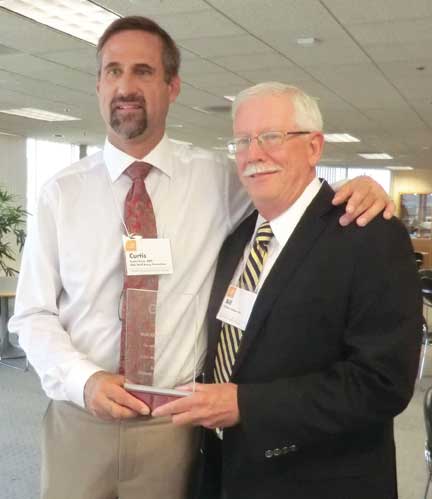William M. Hooker, PhD, former LLU School of Dentistry associate dean for Student Affairs (1994-2008), received the Gale Kloeffler Award for his outstanding service to the California Dental Associations’ Well-Being Program during the CDA’s annual meetings in San Francisco, September 4-6, 2014.

The Gale Kloeffler Award was established in 1995 to recognize volunteers who have demonstrated outstanding service to the CDA Well-Being Program. From across the state, regional Well-Being committees submit nominations and the CDA Well-Being Committee selects the ultimate recipient.
Curtis Vixie, DDS’89, chair of the CDA Well-Being Committee, listed some of Dr. Hooker’s contributions:
- 1983: Developed “Diversion” in LLU School of Medicine for students with dependencies
- 1993: Implemented a similar “Diversion” program at the LLU School of Dentistry
- 2001-2009: Served as member and chair for California’s Southern Diversion Evaluation Committee
- 1996 - Present: Consultant for CDA’s Southern California Regional Well-Being Committee
- 1994: Implemented chemical dependency material into LLUSD curriculum with assistance of California Well-Being members
- 2000-2008: Assisted with California Well-Being educational sessions at UCLA and UOP
- Since retirement in 2008, has served as Case Manager for student and faculty with chemical dependency issues at LLUSD.
It was the second consecutive year that the Award was received by an LLUSD alumnus. Last year’s winner was Ronald Fritz, DDS’72, who has served 13 years as a Well-Being Program volunteer and seven years as chair of the SDCDS Well-Being Program, and is a past member of the CDA Well-Being Committee.
The CDA Well-Being Program reflects the Association’s concern for the effects of alcohol and/or chemical dependency on dental professionals, their families, and patients. The program provides resources to the dental community by identifying and assisting individuals who may suffer from alcohol and/or chemical dependency through its component and regional Well-Being committees. It also serves as a referral source for other disorders and impairments such as sexual addiction, Parkinson’s disorder, glaucoma, diabetes, depression, bi-polar disorder, sexual boundary issues, and etc.
